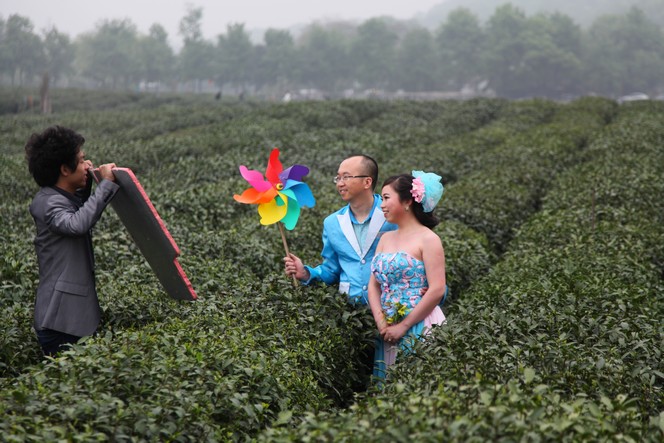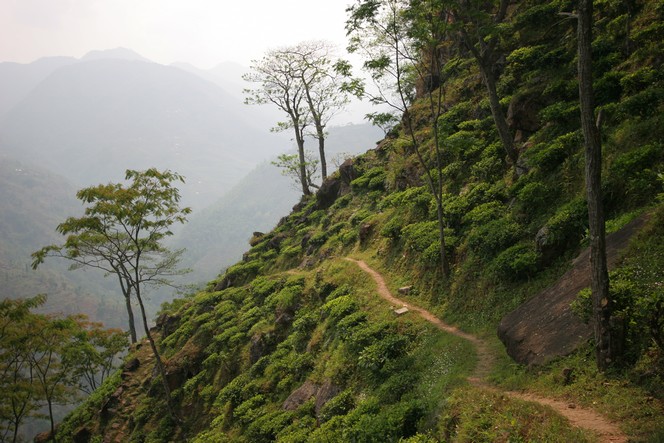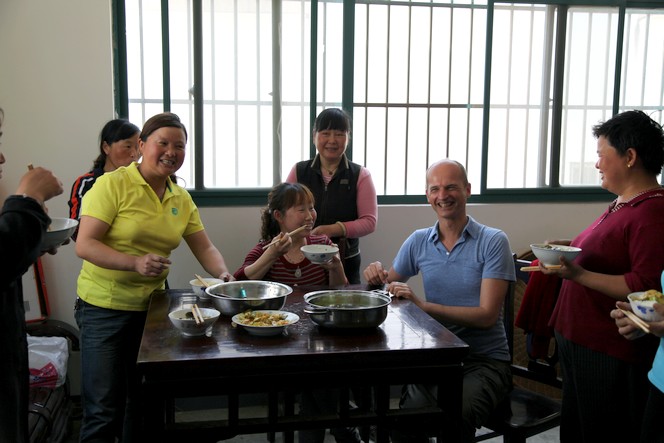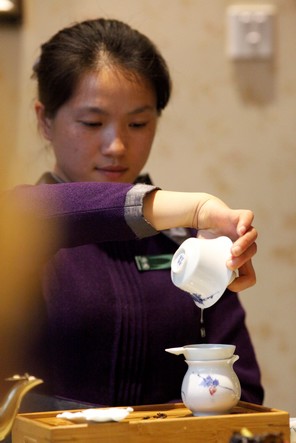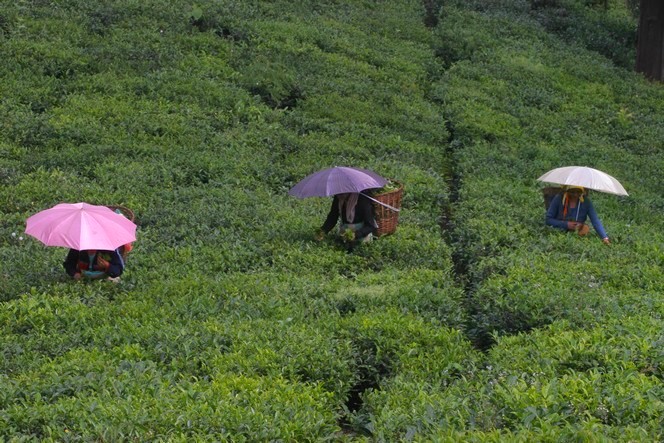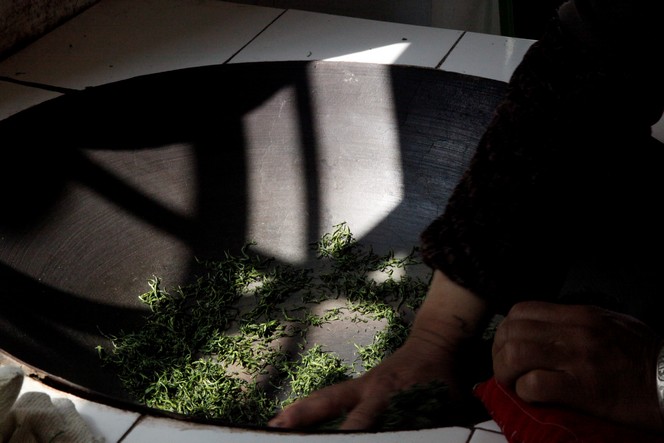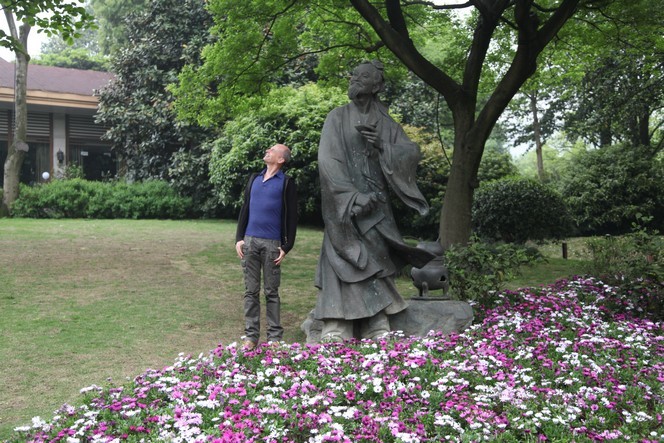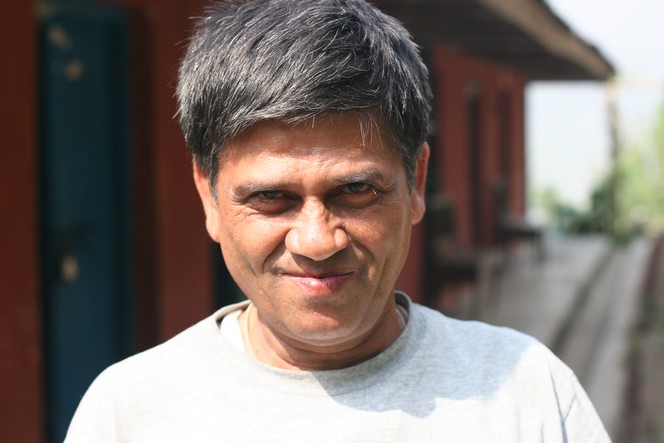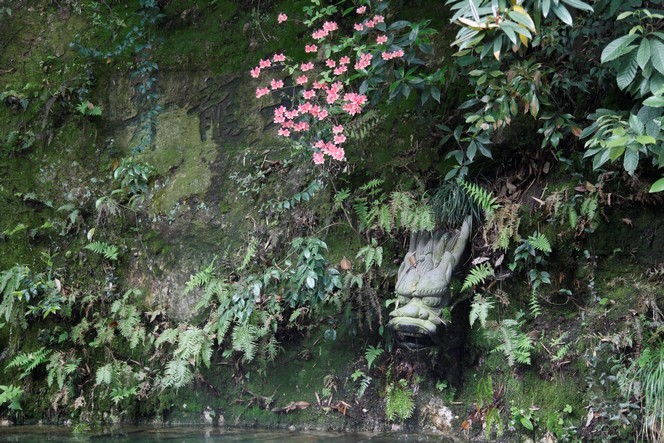If you’re looking for an unusual place to take your wedding photos, and like something a little different, why not try the Long Jing tea plantations (China). While his assistant reflects sunlight onto your radiant faces, the photographer will know just how to immortalise the special moment. Also, the same photographer will generally have some useful accessories to help your pictures stand out from others, instantly giving the happy couple a little more extra style.
A Nepalese plantation in the middle of nowhere
For the first time, a few weeks ago, I bought a lot of a spring tea from the Kanchenjunga Tea Estate. This Nepalese plantation, situated in the middle of nowhere – two day’s travel across the Terai Plain – is one of the most promising in the country.
While there, you can admire the incredible steepness of the slopes as you realise how difficult it must be to harvest the leaves on such a gradient. As for this narrow path which snakes around the side of the mountain, and along which I have seen villagers walking, laden down like mules, it is the only route for the inhabitants of other hamlets located a few days’ walk from here.
Mealtime in a Chinese tea factory
In Chinese tea factories, at mealtimes, everyone puts aside their work, arranges the tables and prepares for the festivities. Eating is one of the favourite pastimes of the Chinese. It is often a moment of conviviality and relaxation, a simple occasion shared by all. It ends with a tea, and sometimes a nap.
The West Lake, a Chinese tourist hot-spot
Many of you will be preparing for the holidays, so here is a view of the West Lake, a Chinese tourist hot-spot. Situated in the middle of the city of Hangzhou, this lake is a dream destination for our friends in China.
Happily, it is possible to enjoy this view while tasting a remarkable, freshly-harvested green tea, as Long Jing is located just a few kilometres away. This proximity to the birthplace of the most famous Chinese tea has its part to play in Hangzhou’s excellent reputation.
The “zhong”: two ways of using it well
In China, there are various ways of using the “zhong”. This recipient – also known as a “gaiwan” – can be used as a cup in which the tea infuses. You drink directly from it, retaining the cover and leaving a slight gap to hold back the leaves.
The “zhong” can also be used as a teapot for “gong-fu”, in which several short infusions are prepared. After each one, every last drop of tea is poured into a reserve pot, from which the guests’ tiny cups are filled.
Everyone then gets to taste a tea with particularly concentrated aromas, and to observe the changes in the liquor’s texture and fragrances, infusion after infusion.
Tea pluckers bringing out their umbrellas
With the weather we’ve had this June, there has been no need to worry about sunstroke. This is not the case everywhere. For example, in Darjeeling this season, when the pluckers have brought out their umbrellas it has been to protect themselves from the sun, not the rain. The women have good taste in their choice of bright, varied colours, making this landscape very similar to a cup of Darjeeling itself. Its floral, flowery, vegetal notes are a real treat for the palate.
Processing tea leaves in China
Here, near Hangzhou (China), the tea leaves are being processed on the scorching sides of the wok. The leaves are heated before being shaped as required, then dried. They must be processed quickly and precisely, which is why many farmers prefer to work with their bare hands.
The story of Chinese poet Lu Yu
We owe the very first writing on tea to the Chinese poet Lu Yu. The Cha Jing, “The Classic of Tea”, dates back to the 18th century. In his book, Lu Yu discusses the nature of tea itself, but most importantly he sets out a method for preparing and tasting it. A statue of this tea fanatic can be found by the excellent Long Jing Tea Museum (China).
Dilli Baskota, un passionné de thé au Népal
Je termine tout juste ma sélection annuelle de thés de printemps en provenance du Népal. Ils seront disponibles dans quelques jours, le temps de les acheminer par avion. Cette année ce sont les plantations de Guranse et de Kuwapani qui ont produits les meilleurs lots. Ils sont remarquables et si vous n’y avez jamais goûté, dépêchez-vous ! Ils valent le détour.
D’autres jardins ont fait de gros progrès et je viens de réserver deux lots correspondants : l’un en provenance de Everest Tea Estate et l’autre issu de Kanchenjunga Tea Estate- une plantation sublime située à l’extrême nord de la Vallée d’Ilam et dirigée par mon ami Dilli Baskota que vous voyez ici. Un homme passionné par le thé et très impliqué dans le développement durable de sa région.
The beautiful source of the Dragon Well
This is for fans of Long Jing. This is the source of the Dragon Well that gave its name to this prestigious tea and to the eponymous city. It is a few kilometres from Hangzhou (China).

